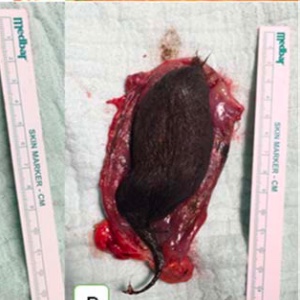 Smart Citations
Smart CitationsSee how this article has been cited at scite.ai
scite shows how a scientific paper has been cited by providing the context of the citation, a classification describing whether it supports, mentions, or contrasts the cited claim, and a label indicating in which section the citation was made.
The esophageal rapunzel syndrome: a case of a trichobezoar in the esophagus
Rapunzel syndrome is a form of trichobezoar, a rare form of bezoar, especially seen in individuals with hair pulling (trichotillomania) and hair eating (tricophagia) habits, that extends from the pylorus into to the duodenum, jejunum and even the colon. We report the case of a 37-year-old woman with a trichobezoar in the esophagus, causing esophageal rupture that required an urgent surgical intervention.
How to Cite

This work is licensed under a Creative Commons Attribution-NonCommercial 4.0 International License.
PAGEPress has chosen to apply the Creative Commons Attribution NonCommercial 4.0 International License (CC BY-NC 4.0) to all manuscripts to be published.

 https://doi.org/10.4081/ecj.2023.11145
https://doi.org/10.4081/ecj.2023.11145





